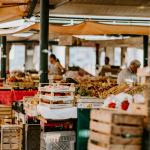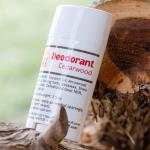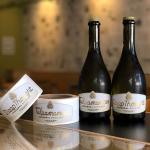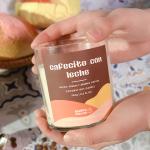-
Why Good Labeling Matters at the Farmers Market
Continue reading »Stand out at the farmers market with label designs that build trust, reflect quality, and hold up through heat, handling, and repeat buys.
-
2025 FDA Food Labeling Requirements: Stay Compliant with New Guidelines
Continue reading »From ingredient lists and allergen disclosures to recent updates like structured product labeling, FDA food labeling requirements are essential. Learn about industry-specific guidelines and how to ensure your packaging stays compliant to avoid fines or product recalls.
-
How to Create Custom QR Code Labels That Actually Work
Continue reading »Ensure your QR code labels scan flawlessly with practical tips on design, sizing, materials, and smart placement for reliable performance across products.
-
How to Choose the Right Lamination for Your Product Labels
Continue reading »We break down the key types of label lamination and helps you choose the best finish to match your product’s durability needs and brand style.
-
What is the Best Way to Print Sticker Labels for My Beers?
Continue reading »Get practical insights on choosing the right materials, printing methods, and design strategies to create standout, durable beer labels that match your brand and brewing goals.
-
California Proposition 65 for Clothing: What Apparel Businesses Need to Know
Continue reading »Explore California Proposition 65's impact on the apparel industry, outlining compliance strategies, potential risks of non-compliance, and the benefits of proper labeling.
-
How to Create Custom Wine Labels That Pop
Continue reading »Create custom wine labels that stand out with bold design, tailored messaging, and professional finishes to perfectly represent your wine and brand.
-
Proposition 65 Exemptions: What Businesses Need to Know
Continue reading »Find out which businesses are exempt from Proposition 65 warnings and how to stay compliant without unnecessary labeling.
-
What are Labels for Candles Made of?
Continue reading »Read up on the best materials for custom candle labels, essential safety requirements, and tips for creating durable, visually appealing labels that enhance branding and comply with industry standards.
-
Candle Label Ideas for Your Business
Continue reading »10 creative candle label design ideas for 2025 that combine style and functionality to captivate customers and elevate your brand.










